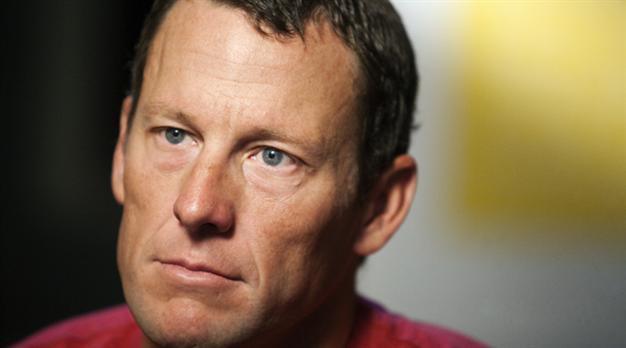Armstrong to lose seven Tour titles
AUSTIN, Texas - Agence France-Presse

Lance Armstrong. AP photo
Lance Armstrong will be stripped of his seven Tour de France titles, the U.S. Anti-Doping Agency said Thursday after the cycling icon announced he would no longer fight the drug charges that have stained his legacy.
USADA said Armstrong will be barred from cycling for life for using performance-enhancing drugs to win cycling's most prestigious race from 1999-2005, charges that Armstrong has vehemently denied.
Armstrong, while maintaining his innocence, announced his decision after a US federal court dismissed his lawsuit against USADA on Monday, paving the way for the agency to continue its case against him.
USADA said in June it had evidence that Armstrong used banned substances, including information supplied by former teammates.
Armstrong accused USADA of launching an "unconstitutional witch hunt" against him as he declined to pursue procedures that could take his case to the Court of Arbitration for Sport.
"Today I turn the page," Armstrong said in a statement on his website. "I will no longer address the issue, regardless of the circumstances. I will commit myself to the work I began before ever winning a single Tour de France title: serving people and families affected by cancer, especially those in underserved communities." The 40-year-old said he was growing weary of the fight and the strain it had put on his personal and professional life.
"There comes a point in every man's life when he has to say 'enough is enough.' For me, that time is now," he said.
"The toll this has taken on my family and my work for our foundation and on me leads me to where I am today - finished with this nonsense." USADA chief Travis Tygart told AFP that Armstrong would be stripped of all his results dating back to August 1, 1998.
In a separate written statement, Tygart called the move a "sad day" for the sporting world and said the "win-at-all-costs culture of sport" needs to change.
He also expressed hope that future crackdowns on athletes who use performance-enhancing drugs would create a "level playing field." "It is a sad day for all of us who love sport and our athletic heroes," Tygart said. "This is a heartbreaking example of how the win-at-all-costs culture of sport, if left unchecked, will overtake fair, safe and honest competition, but for clean athletes, it is a reassuring reminder that there is hope for future generations to compete on a level playing field without the use of performance-enhancing drugs." Tygart said Armstrong did not officially notify the agency that he was dropping the fight.
USADA claims Armstrong used banned substances, including the blood-booster EPO and steroids, as well as blood transfusions dating back to 1996.
It also says it has 10 former Armstrong teammates who were ready to testify against him.
Armstrong argued that USADA was usurping the jurisdiction that should belong to world cycling's governing body, the International Cycling Union (UCI).
Armstrong, who retired from cycling last year, sued in federal court to try to halt USADA's proceedings, but the case was dismissed Monday.
He said he passed hundreds of drug tests during his career and that he adhered to the rules that were in place at the time of his Tour de France wins.
"The bottom line is I played by the rules that were put in place by the UCI, WADA [World Anti-Doping Agency] and USADA when I raced," Armstrong wrote.
"The idea that athletes can be convicted today without positive A and B samples, under the same rules and procedures that apply to athletes with positive tests, perverts the system and creates a process where any begrudged ex-teammate can open a USADA case out of spite or for personal gain or a cheating cyclist can cut a sweetheart deal for themselves." Armstrong also alleged USADA had used heavy-handed tactics to pursue him and even broke the law.
The agency "turned its back on its own rules, and stiff-armed those who have tried to persuade USADA to honor its obligations," he said.
"I refuse to participate in a process that is so one-sided and unfair," he added, alleging that from the start the investigation had been "about punishing me at all costs." Allegations of doping by Armstrong were made in two books, "LA Confidential" and "L.A. Official." In 2005, the French magazine L'Equipe reported that retested urine samples from the 1999 Tour de France indicated use of EPO.
